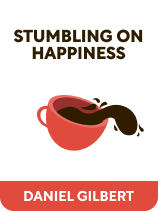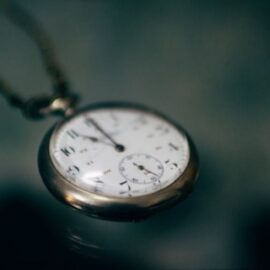

This article is an excerpt from the Shortform book guide to "Stumbling on Happiness" by Daniel Gilbert. Shortform has the world's best summaries and analyses of books you should be reading.
Like this article? Sign up for a free trial here .
Are you looking for Stumbling on Happiness quotes? How can these quotes make you think differently about happiness?
In Stumbling on Happiness, Harvard psychology professor Daniel Gilbert points out that our imaginations, memories, and perceptions of the present are highly subjective and inaccurate. When we make choices about our futures based on this inaccurate information, those choices end up hindering our future happiness.
Here are some of the best Stumbling on Happiness quotes with explanations.
Stumbling on Happiness Quotes
Have you ever wondered why you often regret your choices? In Stumbling on Happiness, award-winning Harvard professor Daniel Gilbert offers an explanation for what are, in his view, unavoidable poor decisions: You fabricate a large part of your reality—your memories of the past, perception of the present, and vision of the future. When you then use these inaccurate perceptions of the future, present, and past to make choices about what to do in the future, your choices are often poor and hinder future happiness.
Here are some of the top Stumbling on Happiness quotes.
“The fact that we often judge the pleasure of an experience by its ending can cause us to make some curious choices.”
One reason Gilbert says you can’t rely on memories to correct your decision-making is that you remember the ends of experiences more than the bulk of experiences. This means you look at a narrow piece of an experience—the end—to inform your decision on whether or not to pursue the whole experience again. If the end doesn’t reflect the overall experience, you make the same mostly-poor choices again and again, laments Gilbert.
For instance, if you went on an amusement park ride that you mostly disliked but which had a great final loop, you might go on the ride again because you recall only the final loop and not the bulk of the ride. This is a poor decision because you disliked the vast majority of the ride: Back on the ride, you’ll wonder why you thought it would be a good idea to do it again. When you get off, though, you’ll once again only recall the great final loop, and this will again lead you back to the mostly-average ride.
“Our inability to recall how we really felt is why our wealth of experiences turns out to be poverty of riches.”
The final reason your memories can’t help you correct your decision-making is that you reconstruct memories to reflect how you think you should have felt at the time rather than how you did feel, says Gilbert. This means you don’t remember your true emotional reaction to an event and can’t learn from it.
Here’s an example: You hated going to your sister’s wedding. However, you believe that you should enjoy weddings because everyone enjoys weddings. Therefore, you’ll falsely remember yourself as having been happy at the event. This prevents you from correcting your decision-making in the future, and you’ll RSVP “yes” to another wedding that will, in reality, not be fun for you.
“We treat our future selves as though they were our children, spending most of the hours of most of our days constructing tomorrows that we hope will make them happy… But our temporal progeny are often thankless. We toil and sweat to give them just what we think they will like, and they quit their jobs, grow their hair, move to or from San Francisco, and wonder how we could ever have been stupid enough to think they’d like that. We fail to achieve the accolades and rewards that we consider crucial to their well-being, and they end up thanking God that things didn’t work out according to our shortsighted, misguided plan.”
According to Gilbert, you make choices about the future that are based on feelings you have now. Because how you’re feeling now may not reflect how you’d feel about the choice in the future, this can lead to poor decisions.
To explain this further, remember that your mind envisions the future using existing references (your current experiences and memories). Gilbert notes that when you’re considering a future choice, your mind pictures what that choice will look like using references from your past and present. You then have an emotional reaction to this picture in your mind, and this emotional reaction informs your decision—you’ll opt for the choice if you have a positive emotional reaction to the image of it.
Problems arise when your brain is already experiencing a strong emotional reaction to something in the present. In such cases, your brain focuses on your present feeling—ignoring the true future emotional reaction to the scenario you’ve imagined—and transposes it onto your imagined future scenario. You thus think your present feeling applies to the choice you’re considering for your future, even if your present emotion has nothing to do with the choice at hand. This can lead you to, say, reject a choice that would make you happy just because you’re feeling sad in the present.
“Imagination cannot easily transcend the boundaries of the present, and one reason for this is that it must borrow machinery that is owned by perception. The fact that these two processes must run on the same platform means that we are sometimes confused about which one is running. We assume that what we feel as we imagine the future is what we’ll feel when we get there, but in fact, what we feel as we imagine the future is often a response to what’s happening in the present.”
Gilbert says that you imagine things and events using images, experiences, and memories already stored in your brain. For instance, when prompted to imagine a werewolf, your brain summons images of werewolves you’ve seen in movies. Your brain must use existing references to imagine things, emphasizes Gilbert: Without an existing reference, your brain can’t imagine something. This is why, if someone asks you to imagine a “sneedle,” you can’t do it because you have no stored images of a sneedle.
(Shortform note: In the same way it’s impossible for us to imagine something we have no prior reference for, as Gilbert argues, it’s often impossible for writers of sci-fi works to imagine facets of the future for which there are no current references. For example, the 1991 film Until the End of the World, predicted that we’d be using video-pay phones in 1999. At the time of the movie’s making, the scriptwriter perhaps could not conceive of a personal mobile device that made video calls.)

———End of Preview———
Like what you just read? Read the rest of the world's best book summary and analysis of Daniel Gilbert's "Stumbling on Happiness" at Shortform .
Here's what you'll find in our full Stumbling on Happiness summary :
- A look at how your brain fabricates your reality leading you to make bad decisions
- The six specific types of bad choices people make
- How to improve your decision-making in the future






